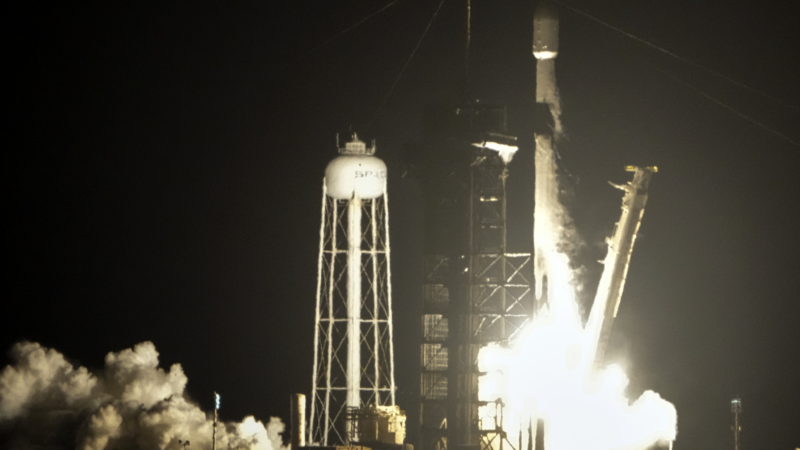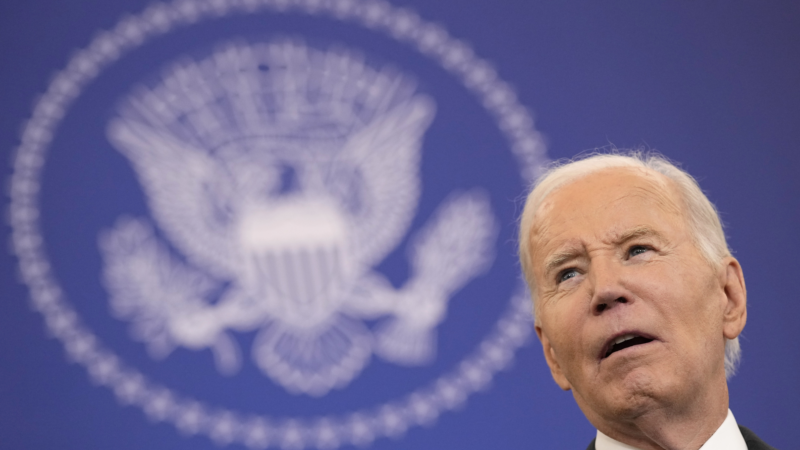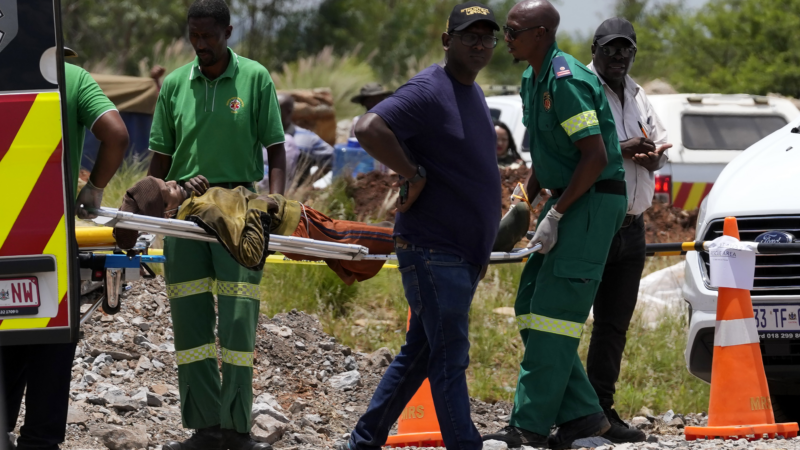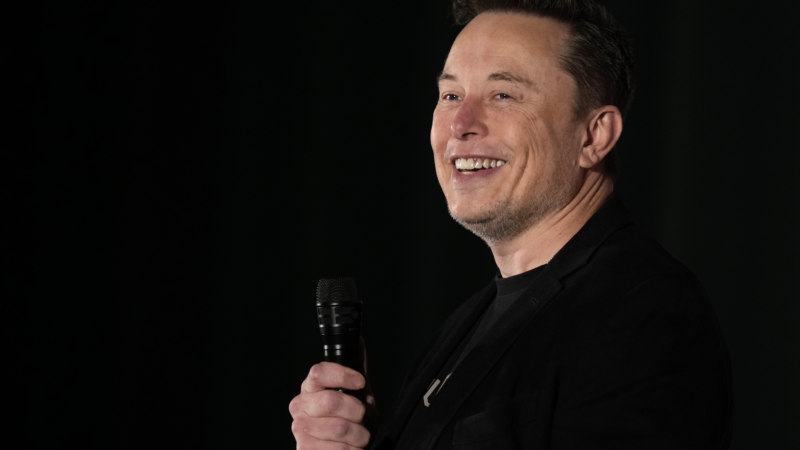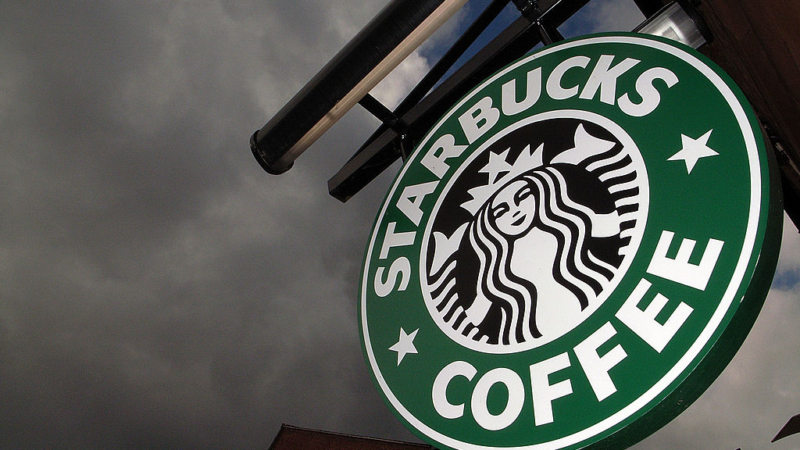For kids with rare genetic disorders, customized CRISPR treatments offer hope
Lucy Landman was born with a very rare genetic disorder that causes severe intellectual disability, weak muscles and seizures, among other symptoms.
“She is expected to very much never be able to live independently, likely never be potty trained, likely never speak,” says Gerri Landman, Lucy’s mother.
Lucy, who is now 3 years old, has trouble with coordinating her muscles. She “walks like she’s drunk most of the time,” Landman says. “It’s hard to watch your child suffer. And Lucy does, some days, suffer a lot.”
There are only a handful of kids in the world with Lucy’s disorder, which is called PGAP-3 CDG. There’s no way to treat it.
In principle, CRISPR, the gene-editing technique that enables scientists to easily make very precise changes in genes, could be a godsend for patients like Lucy. CRISPR can edit the pairs of genetic letters, or bases, that make up DNA.
“We’re lucky that both of her mutations — the one that she gets from me and the one she gets from my husband — are what we call base-editable,” says Landman, a pediatrician who lives outside San Francisco.
That means her mutations are good candidates for CRISPR, which could be used to “kind of cut out the wrong base pair and put back in the right one,” she says.
Landman says she also feels lucky to live in 2024 when CRISPR treatments are “a legitimate possibility.”
The rarest diseases get overlooked by drugmakers
But Lucy’s disorder affects too few people to attract the millions of dollars necessary to find out if CRISPR could work.
“When Lucy was diagnosed, I asked a bunch of my basic science friends who work at Genentech and all these other big companies in the Bay Area and I said, “Can’t we just CRISPR this? This seems like it’s so feasible,'” Landman says. “And they were like: ‘No one’s working on this yet, Geri.'”
So Landman started a foundation to try to change that by raising money to research single-gene disorders like her daughter’s.
One day, while out fundraising at a farmer’s market, she bumped into Fyodor Urnov, who runs the Innovative Genomics Institute at the University of California, Berkeley. The institute was started by Jennifer Doudna, who shared a Nobel Prize for helping discover CRISPR.
Urnov and his colleagues are trying to help kids suffering from rare disorders like Lucy’s. There are thousands of such conditions that affect millions of patients.
“The for-profit sector is focusing on conditions, such as sickle cell disease, such as cancer, which are commercially viable because there are just enough people with them,” Urnov says.
The problem is, “that leaves 99.5% of folks outside of the big building that says, ‘Come here, be healed by CRISPR’ because the commercial viability is not there even though the technical feasibility is right in our hands.”

A ‘cookbook’ for CRISPR treatments
So Urnov, as well as scientists at other universities, including the University of Pennsylvania and Harvard, are trying to develop a template for groups of rare conditions that are similar enough that a gene-editing treatment for one could be easily adapted for others.
“We are building a set of recipes and approaches for how to switch from one disease to another and not take four years and $10 million to do that,” Urnov says.
The approach from one patient to the next would be essentially identical except for the specific genetic letters that are edited, he says. That way each case wouldn’t necessarily have to go through a long, expensive approval process at the Food and Drug Administration.
“The central idea is that cookbook will have been reviewed by the Food and Drug Administration,” Urnov says. And then scientists could approach the agency and essentially say: “FDA: We have a severely ill child with four months to live. Here is the cookbook for how to make the CRISPR on demand. We’d like to use that cookbook.”
Hopefully, he says, the answer would be: ” ‘Yes. We understand. Please proceed.’ That’s the goal.”
It’s an ambitious goal. But others say it could work.
“CRISPR is very much like a razor blade handle and a razor,” says Dr. Peter Marks, the director of the Center for Biologics Evaluation and Research, which regulates gene editing at the FDA.
“Much of CRISPR — the razor-blade handle part — is going to be the same over and over again. And so we just need to focus on the razor-blade portion, which could be different [for different rare diseases] and yet fit on that same razor,” Marks says.
Urnov has already started editing some of Lucy’s cells in his lab to show that CRISPR could help her and other kids with similar mutations.
Gerri Landman is hopeful that maybe, someday that could help her daughter Lucy.
“And the question is: ‘If we do that at age 3 or age 5 or age 7 can we cure some of the other features of her disease? Does she cognitively improve? Does she learn to speak in that way?'” Landman says. “That’s certainly the hope.”
2 private lunar landers head toward the moon in a roundabout journey
In a two-for-one moonshot, SpaceX launched a pair of lunar landers Wednesday for U.S. and Japanese companies looking to jumpstart business on Earth's dusty sidekick.
Biden moves to lift state sponsor of terrorism designation for Cuba
President Biden notified Congress of his intent to lift the U.S. label of Cuba as a state sponsor of terrorism as part of a deal aided by the Catholic Church to free political prisoners on the island.
Dozens of survivors and dead pulled from abandoned South African mine
The mine has been the scene of a tense standoff between police and miners since authorities launched an operation to force the miners out by cutting off food and water from the surface.
South Korean law enforcement officers detain impeached President Yoon
Yoon was brought into custody about three hours after hundreds of law enforcement officers entered the residential compound in their second attempt to detain him over his imposition of martial law last month.
SEC sues Elon Musk, says he didn’t disclose Twitter ownership on time before purchase
The U.S. Securities and Exchange Commission says Musk failed to disclose his ownership of Twitter stock in a timely manner before buying the site and underpaid by $150 million for shares he bought.
No such thing as a free toilet: Starbucks reverses open bathroom policy
The new guideline is a reversal of a 2018 open-door policy that was implemented after two Black men, who had not ordered anything, were arrested at a Philadelphia store.

